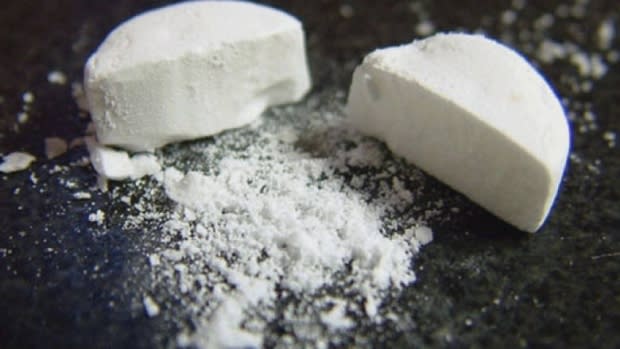Atlantic Canada's highest opioid overdose rates in Cape Breton, Moncton

Cape Breton and Moncton, N.B., had the most people in Atlantic Canada showing up at the hospital with opioid poisoning in 2017, according to a new study by the Canadian Institute for Health Information.
That year, there were 27.9 hospitalizations in Cape Breton and 27.3 in Moncton due to opioids.
But a Cape Breton health-care expert says those numbers could indicate "people feeling less stigmatized" to seek help.
"It could mean that people are getting the help that they always needed, whereas before maybe they were afraid," said Sharon MacKenzie, mental health and addictions manager with the Nova Scotia Health Authority's eastern zone.
The numbers in the study are based on a per 100,000 population and are age-adjusted.
MacKenzie said her department has done a lot of education with people who might need to get help.
Shorter waits for help
She said wait times for opioid treatment are now less than a week — a factor that could contribute to more people coming forward for help.
"Right now, anyone who is in the Cape Breton area who needs help and is wanting treatment for opioid-use disorder — the response is pretty much immediate," said MacKenzie.
"Our wait times are almost nothing compared to previous years."
St.John's, N.L., is just behind Cape Breton in terms of people going to hospital with opioid poisoning — with 26.5 hospitalizations in 2017. Fredericton had 13.9, whereas Halifax had 4.6.
Naloxone kit factor
MacKenzie, a registered nurse and someone who has worked with addiction services for the past 15 years, said a major part of the education is connected with other services offering Naloxone kits and training people on how to use them.
Naloxone is an opioid overdose antidote.
The sharing of accurate information about what's available is crucial, said MacKenzie.
"Besides word of mouth, which is the best way in terms of the clients that we serve — but also all those community partners," said MacKenzie.
"We meet with them, provide education on harm reduction and what our intake process is and they in turn can help clients access those services."
There are 20 staff in the opioid recovery program currently serving 750 clients across the five areas of the eastern zone: Antigonish, North Sydney, Glace Bay, New Waterford and Sydney.

